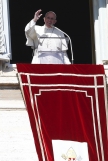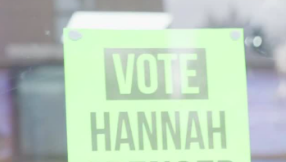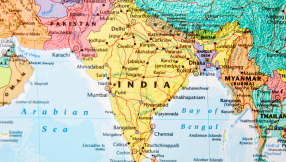The European Union edged closer on Monday to accepting that its Schengen open-borders area may be suspended for up to two years if it fails in the next few weeks to curb the influx of migrants from the Middle East and Africa.
Shorter-term dispensations for border controls end in May. EU migration ministers meeting in Amsterdam decided they may be extended for two years – an unprecedented extension – because the migrant crisis probably will not be brought under control by then, according to the Dutch migration minister, who chaired the meeting.
Some ministers made clear such a – theoretically temporary – move would cut off Greece, where more than 40,000 people have arrived by sea from Turkey this year, despite a deal with Ankara two months ago to hold back an exodus of Syrian refugees. More than 60 have drowned on the crossing since January 1.
Greek officials noted that closing routes northward, even if physically possible, would not solve the problem. But electoral pressure on governments, including in the EU's leading power Germany, to stem the flow and resist efforts to spread asylum seekers across the bloc are making free-travel rules untenable.
"We are running out of time," said EU Migration Commissioner Dimitris Avramopoulos. He urged states to implement agreed measures for managing movements of migrants across the continent – or else face the collapse of the 30-year-old Schengen zone.
But the Dutch minister, Klaas Dijkhoff, said time has effectively already run out to preserve the passport-free regime. The system has allowed hundreds of thousands of people to make chaotic treks from Greece and Italy to Germany and Sweden over the past year.
"The 'or else' is already happening," he said. "A year ago, we all warned that if we don't come up with a solution, then Schengen will be under pressure. It already is."
Under pressure from domestic opinion, several governments have already reintroduced controls at their borders with fellow EU states. Those controls should be better coordinated, said Dijkhoff, whose government last year floated the idea of a "mini-Schengen", which critics saw as a way for Germany and its northern neighbors to bar the influx from the Mediterranean.
Fear and loathing
But the EU executive and leading power Germany are bemoaning a nationalistic tide that could put at risk not just Schengen but the euro and even the foundations of the EU. In that light some diplomats saw the talks in Amsterdam as another scare tactic from those refusing to close the door to migrants.
"The discussion is full of these apocalyptic predictions," one said. "But things won't really change in two months."
With many EU states, vocally led by the ex-communist East, refusing to take in significant numbers of refugees, the only way to stop chaos in Europe was, he said, to stop arrivals in Greece. Given legal and moral obligations to pluck people from the sea, that leaves the EU reliant on uncertain ally Turkey, which is seeking European cash and other favours.
German Chancellor Angela Merkel, who opened her country's borders to Syrians fleeing civil war last summer, is under mounting pressure to halt the inflow, after more than a million migrants entered Germany last year.
Unless the numbers drop before Merkel meets fellow EU leaders at a summit in mid-February, some form of border closing by the bloc's leading power would be increasingly likely – not least as Germans vote in key regional elections in March. That decision would have a knock-on effect across Europe.
The Commission, the EU executive, is already reviewing whether Greece's difficulty in processing constitute "persistent serious deficiencies" on the external EU frontier. Such a finding would justify a historic move to allow states to re-impose controls on those arriving from Greece.
The Commission is due to make recommendations next month. Athens would then have three months to respond. Existing measures taken by some states under a different rule expire in mid-May. Minister Dijkhoff made clear that few expect the situation to improve by then, so the longer-term suspension should be ready.
Under that rule, Article 26 of the Schengen code, countries could re-impose controls on documents for six months, renewable three times, until May 2018. EU officials acknowledged, however, that no one knows what would happen after that if governments were not prepared to return to the status quo before last year.
Schengen on the brink
"Everyone understands that the Schengen zone is on the brink," said Austrian Interior Minister Johanna Mikl-Leitner, whose government has warned it will limit entry to migrants.
Her Swedish colleague, Anders Ygeman, whose government called a halt after taking proportionately the greatest share of refugees, told Reuters that if Greece and Italy failed to set up "hot spot" centers to separate refugees from possible terrorists and economic migrants, then they would face isolation from the Schengen area.
Appearing anxious to calm a confrontation with Athens – which had already clashed with Berlin last year over bailout loans to keep Greece in the euro zone – the German interior minister was more reserved: "Blaming people in public doesn't help," Thomas de Maiziere said.
Senior EU officials have warned of the costs to trade that new border checks could impose, although few analysts foresee a return to lines halted at frontiers around Germany, France or the Benelux countries, across which millions commute daily to work.
The EU has taken various steps to give cash-strapped Athens financial assistance to deal with the crisis, but many member states believe Athens is not using that enough. The EU has now proposed establishing over the coming months a common European Border and Coast Guard to tighten control of the EU frontiers.














